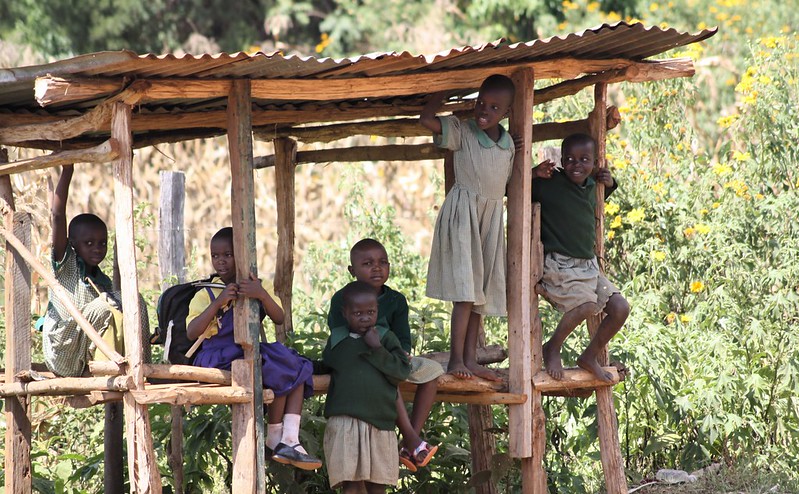Teaching Children in Sub-Saharan Africa Via TV Amid COVID-19
 As a result of the coronavirus pandemic, schools around the world have been forced to find innovative and sometimes unusual alternatives to traditional forms of teaching. Several countries in sub-Saharan Africa, such as Tanzania and Kenya, have decided to close schools until January 2021. As a result, the nations’ education departments are collaborating to create educational television programs as a solution for teaching children in sub-Saharan Africa during COVID-19.
As a result of the coronavirus pandemic, schools around the world have been forced to find innovative and sometimes unusual alternatives to traditional forms of teaching. Several countries in sub-Saharan Africa, such as Tanzania and Kenya, have decided to close schools until January 2021. As a result, the nations’ education departments are collaborating to create educational television programs as a solution for teaching children in sub-Saharan Africa during COVID-19.
Teaching Children in Sub-Saharan Africa During COVID-19
Bringing access to education to every child is a task that many African nations are working on, but have not yet achieved. Recent statistics from the United Nations Educational, Scientific and Cultural Organization (UNESCO) show that one-third of the children in sub-Saharan Africa are not in school. This issue is also a gendered one, with UNESCO reporting that only 8% of girls finish secondary school.
The COVID-19 pandemic has made it all the more difficult for children in this region to access educational resources. UNESCO monitoring shows that COVID-19 has affected 1.2 billion children’s education around the world. In addition, many organizations believe that developing nations will continue to struggle to fund education in the upcoming years due to the urgent redirecting of funds in response to coronavirus.
Governments in sub-Saharan Africa are not left with many choices but to shut down schools to best protect the health of civilians. Online schooling is not an option for many children in this region. UNICEF reports that at least one in two children in sub-Saharan Africa do not have access to the internet, with many more lacking stable and uninterrupted connections. In turn, governments have turned to television programs during COVID-19 as a creative alternative that may be more accessible than online programs.
Ubongo
Ubongo, which means ‘brain’ in Swahili, is one of Africa’s most popular producers of children’s entertainment. Founded in 2013, its programs now reach more than 17 million homes across Africa. The organization produces free, entertaining educational content on television, radio and mobile phones to ensure the most access possible.
Ubongo has programs for different age groups, ranging from ages 3 to 14. One challenge that Ubongo faces is the difference in language across the continent. However, CEO and co-founder Nisha Ligon explains that the organization is actively working to adapt its content to the needs of children across Africa as its capacity grows.
For many children who are unable to attend school due to government regulations, Ubongo is the only way to continue learning. One Tanzanian mother told Reuters that Ubongo has helped her child “differentiate a lot of shapes and colors, both in English and Swahili.”
According to Ubongo’s head of communications, Iman Lipumba, the COVID-19 pandemic has given the organization the opportunity and responsibility to expand its operations. Between March and August 2020, Ubongo expanded from nine countries to 20.
Teaching children in sub-Saharan Africa via educational television programs during COVID-19 has given many children the opportunity to broaden their knowledge, but TV programs are certainly not a permanent nor comparable replacement to in-class learning. However, in the near future, during which COVID-19 will surely continue to affect access to education, Ubongo plans to develop more content about health and the prevention of COVID-19.
– Leina Gabra
Photo: Flickr
